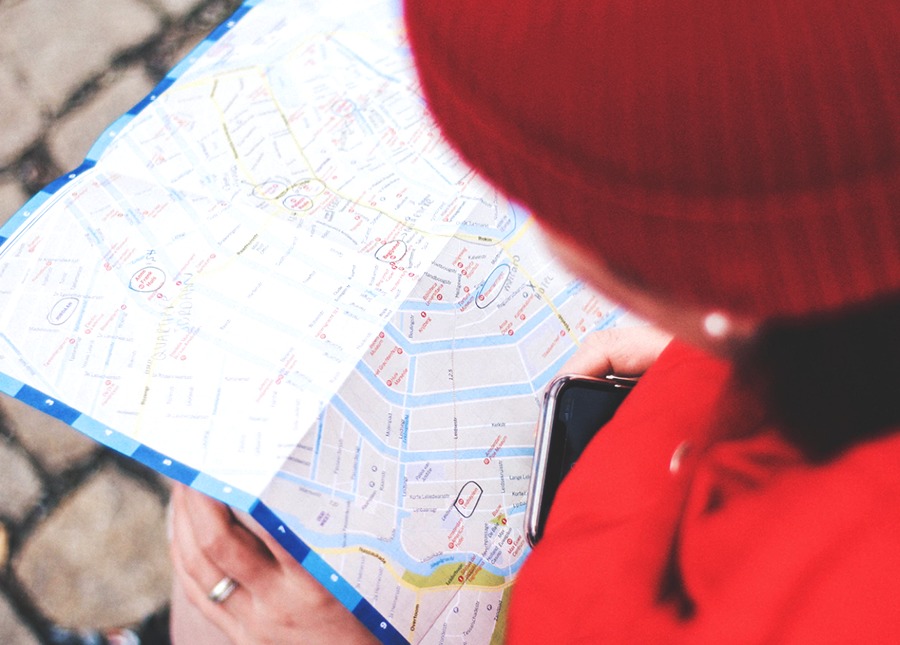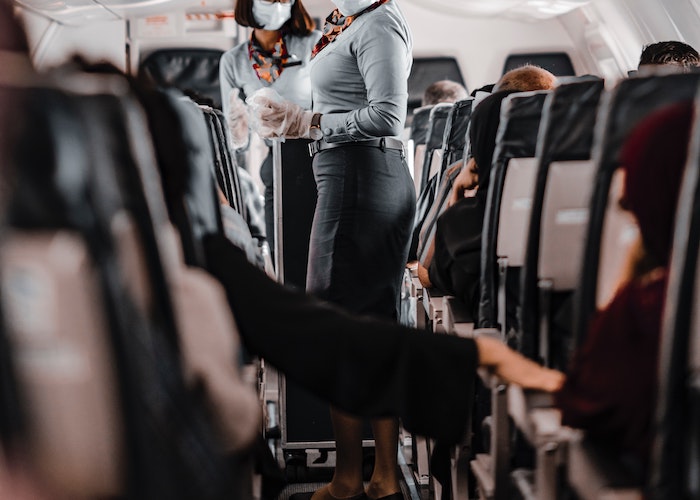How I Took A Gap Year & Traveled The World For Less Than $4,000

Traveling the world is the kind of trip that many people dream of, but it’s often associated with breaking the bank. I decided to throw caution to the wind and embark upon a gap year before starting my university career. But imagine the horror I felt when looking through online forums, seeing that previous gap year-ers posting that they had spent an average of $13,000.
Unfortunately, I didn’t have a spare $13,000 to dive into, nor did I want to acquire this much debt. I had a couple of options: I could defer my gap year until I could afford it, or I could find a way to travel the world on my budget. Admittedly, I had traveled before and am thrifty. Nevertheless, my gap year didn’t cost me more than $4,000 — in fact, it could have been a lot less. I am still finding foreign currency I withdrew but never spent.
I stuck to my budget by finding free accommodation, scouring skyscanner.net for the cheapest flights, and removing all luxuries from my budget. I gave up meat to make my food shopping cheaper, walked to most places, and depended on free Wi-Fi to communicate with back home. Here are some tips on how to travel the world on a tight budget:
Ways to Get Free Accommodation
Couch Surfing
Using Facebook to find a place to sleep is the easiest way to get free accommodation. Message people on your friends list along with creating posts to see if anyone has somewhere you can rest for the night. If people are able to find love on Facebook, it is certainly possible to find someone offering a couch to sleep on.
If you don’t have any international friends or would rather meet new people, there are many apps which help put you in contact with locals offering a place to stay. I used Couch Surfing — there are other apps out there, but personally, I found this the easiest to use. I often got more than just a free bed, as hosts shared their food with me and showed me around; it was like having my own personal tour guide. The app also has hangouts, where you can meet other travelers who are also new to the city, in case your hosts are busy working.
Volunteering
During my round-the-world trip, the majority of my time I spent with other travelers, whereas whilst volunteering, I spent most of my time with locals in a complete cultural immersion, speaking their language and getting to know their way of living. I volunteered many times throughout my travels. The longest was spent volunteering in Cambodia, teaching English as a foreign language to local children. While this was only one of the two times I paid for accommodation throughout my year, it wasn’t expensive at $2 a night, and I stayed for three months. On these types of projects, if you hang around long enough and take on more responsibility, it’s usually possible to stay completely for free or even get pocket money.
House Sitting
House sitting has become a very popular option of traveling. It is free, and you get spacious comfortable accommodation rather than cramping yourself into dorm-style hostel rooms. You are required to take care of the house, keeping it tidy along with caring for any animals they have. A lot of travel bloggers prefer to house sit when they need to put down roots for a while, but aren’t ready to fly home. I house sat for a family in Melbourne who were on holiday for a couple of weeks, and in Toulouse for a couple who had moved to England but weren’t ready to sell their house in France yet. I also saw ads asking for house sitters for an entire year!
Help Exchange
Working in exchange for board jobs can be anything: au pairing, cleaning, cooking, bar work, or building and repair work. The limits are endless — I saw someone looking for help searching for bigfoot! My help exchange was less exciting, working in a hostel bar in Koh Samui that I found on WorkAway, but you do need to apply months in advance. Farming is another popular option. WWOOF is an organization which puts workers in contact with farms around the globe. You help out on a farm and get your food and accommodation provided.
Camping
Camping is not the most popular accommodation option these days, as travelers tend to opt for modern hostels with party atmospheres and fashionable facilities. In addition, a campsite can almost be the same cost and miles from town. However, asking to pitch your tent in someone’s garden can often surprisingly be free, even though I always offered to contribute something. I’ve been offered free breakfast with every family I’ve pitched up at, and twice I was invited to stay for a month to teach the family’s children during their school holidays (but didn’t have time to stick around). If you look clean and tidy and not too threatening, it is definitely a viable option.
Working A Passage
The most obvious way of working a passage is on a cruise ship. You need to plan this in advance, but there is a need for all different types of jobs, from housekeeping to kitchen porters, shop assistants, entertainers and everything in between. Yachts owners also need a crew and experience is not always necessary. Boat owners post ads on Crewseekers.net looking for help in exchange for passage. You will need to be flexible, as weather conditions will affect routes and journey time. The Mercy Ship crew is led by a team of volunteers. It docks to provide free medical care in more than 55 of the world’s poorest countries. Depending on when and for how long you commit, you may get transportation to the next country, or enjoy life in a harbor.
Cook For Yourself
A crucial part of sticking to a low budget is eating in. Any accommodation you choose, be sure there is a kitchen, or travel with a lightweight stove. Eating out for three meals a day adds up very quickly — you might as well throw your money out the window. I saved a mini-fortune by avoiding cafes and restaurants, saving them for special occasions. Going vegetarian is another great way to save money, as meat can be expensive. In Switzerland, I was shocked to find 1 kg of chicken breast priced at $25.
Make Money Whilst Travelling
Jobs Abroad Networks
Working abroad doesn’t have to be in a stuffy office. There is freedom to do anything — being a ski instructor, kids’ entertainer, or bar staff. Search online and arrange something before you go or apply on the road once you’ve settled in a country. CoolWorks had been used by a lot of travelers I met.
Teaching English
Teaching English as a foreign language (TEFL) can be organized before travel, and wages can vary. Typical Asia salaries for teaching are between $1,000 to $3,000 per month, depending on hours and contract. But you might need a degree if arranging in advance. In Cambodia after volunteering, I had an offer of paid work in Phnom Penh. I couldn’t accept, as I had onward flights, but most travelers in Asia and South America seemed to be getting offers if they had even the smallest amount of experience.
Tour Guide
If you’re confident and don’t mind speaking in front of a small group of people, becoming a tour guide is a great option to earn money while traveling. It also helps save money on visiting tourist attractions, as you can enter for free while showing people around, and with a pre-prepared script from the organizers, you will probably learn more than the locals.
Blogging
Blogging is the latest way to earn money while traveling. Some bloggers earn money through advertisements on their site and sponsored content, while others may offer a review in exchange for free accommodation. But it can also be counterproductive financially, as you may have to pay for more luxury accommodation with faster or more secure Wi-Fi or spend time in noisy cafes and restaurants. In any case, blogs can take years to gain a following and become monetized. I did meet digital nomads on my travels, but it looked like they were constantly distracted with an article or an advertiser!
Some travelers like to start a blog, not to help fund their trip and earn money from but instead as a way to document travels. Without having to message everyone individually, it’s a great way for friends and families to keep up to date with where you are and what you are doing.
Stick to Your Budget
Research is your best friend when setting a budget. A flat $100 a week won’t work, as some countries will cost more than others. A quick google search of “average daily spending in” will bring up a rough idea of how much you’re likely to need. My one rule while traveling was to never go over my budget. I was frugal, but still did all of the things I wanted to.
Look for different variations of the same excursions. There are often day trips and half trips which are available, they may not be advertised as much as they are much cheaper and the exact same thing as the weekend trips. I also made sure not to join any unnecessary tours and guides — why pay for a guide when you can turn up and follow a free audio tour?
It can be difficult to stick to a budget, to begin with, but there are many apps and techniques that can be helpful. I personally found that withdrawing my weekly budget on each Monday and only allowing myself to spend that money for the week worked best for me; any leftover money went back into the bank, so I never got used to spending more than my weekly budget. It is disappointing when you can’t afford to do the big sights at the end of your trip because you’ve run out of money. There’s no point being in another country if you can’t afford to go out and see it. Be frugal whenever you can so you’re able to enjoy what the world has to offer. A year is a long time!
Astrid Halliday is a keen traveler and an aspiring writer. She wants to share her passion of traveling the world with others, debunking myths that around the world trips are only for the wealthy or retired.
Image via Unsplash
Like this story? Follow The Financial Diet on Facebook, Instagram, and Twitter for weekly tips and inspiration, and sign up for our email newsletter here.




